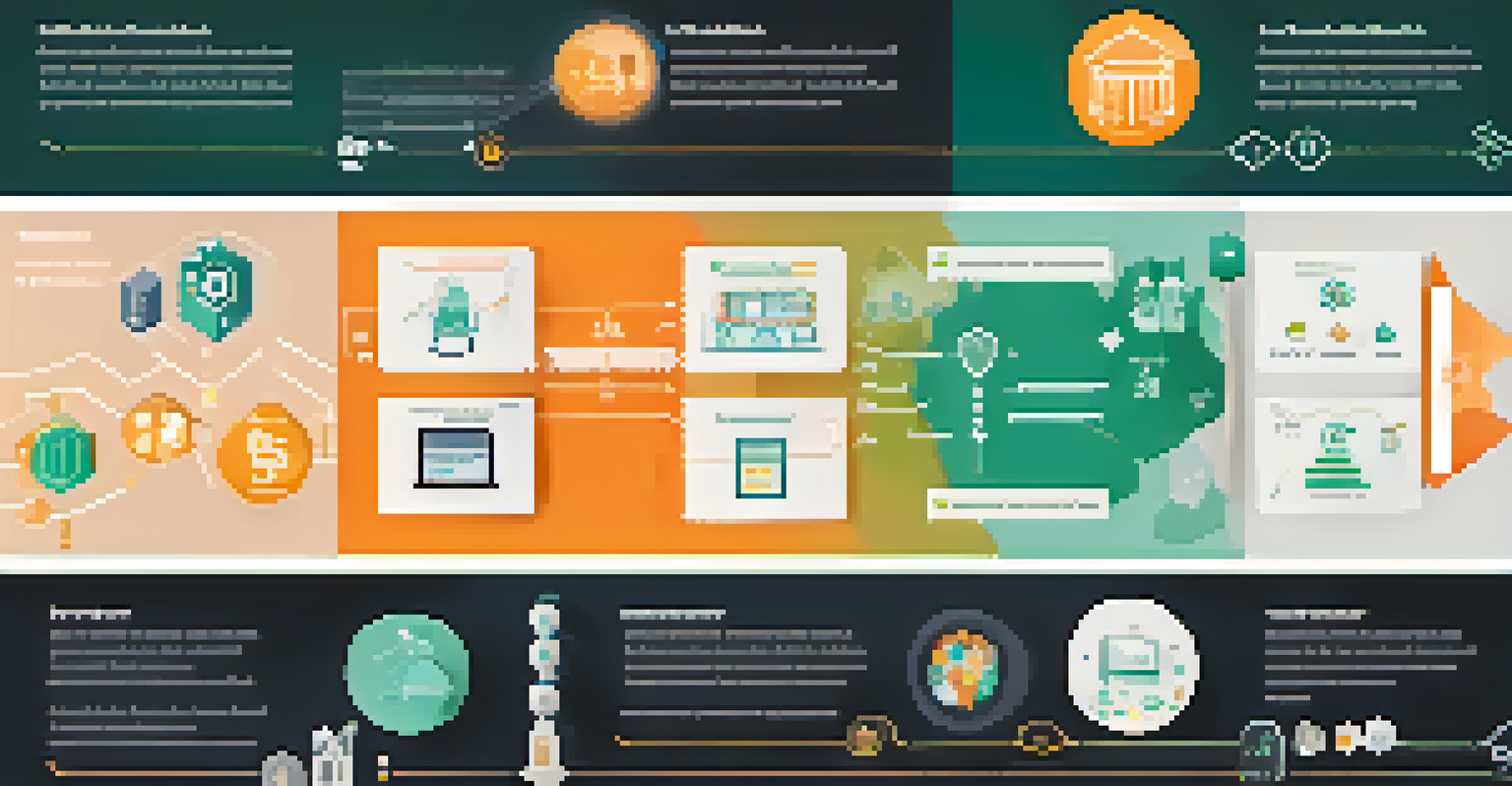Decentralization: The Key to Trustworthy Digital Transactions

What is Decentralization in Digital Transactions?
Decentralization refers to the distribution of authority and control away from a central point. In the context of digital transactions, this means that no single entity, like a bank or government, has complete oversight. Instead, multiple participants or nodes share the responsibility, which can enhance security and transparency.
Decentralization is the future of the financial system, enabling users to interact directly and securely without intermediaries.
A relatable analogy is a potluck dinner, where everyone brings a dish to share. Just as no one person controls the food at the table, decentralization ensures that no single party can manipulate or control the entire transaction process. This sharing of power helps to build trust among users.
Ultimately, decentralization can create a more resilient system, where the failure of one participant does not lead to the collapse of the entire network. This is particularly important in today's digital landscape, where trust is paramount.
The Role of Blockchain in Decentralization
Blockchain technology is often the backbone of decentralization in digital transactions. It operates as a distributed ledger, recording transactions across multiple computers so that they cannot be easily altered. This transparency is critical for building trust among users who may not know each other.

Imagine a community bulletin board where people post announcements. Once something is pinned up, it can't be easily removed or changed without everyone noticing. Blockchain functions similarly, ensuring that once a transaction is recorded, it remains immutable and verifiable by all participants.
Decentralization Enhances Trust
By distributing authority, decentralization fosters transparency and allows users to independently verify transactions.
The use of blockchain helps eliminate the need for intermediaries, which can reduce transaction costs and increase efficiency. This aspect of decentralization not only fosters trust but also empowers users to have more control over their transactions.
Trust and Transparency in Decentralized Systems
Trust is crucial in any transaction, and decentralization enhances it by providing transparency. When everyone has access to the same information, it minimizes the chances of fraud or manipulation. Users can independently verify transactions, which fosters confidence in the system.
The more we can decentralize, the more we can empower users and create a trustless environment.
Think of it like a group project where everyone can see each member's contributions. When all actions are visible, there's less room for dishonesty. In decentralized systems, participants can audit transactions, ensuring that everything is above board.
This transparency not only builds trust among users but also encourages good behavior. Knowing that their actions are visible to others can deter bad actors from attempting to exploit the system.
Empowering Users: Control Over Transactions
One of the most appealing aspects of decentralization is that it empowers users by giving them greater control over their transactions. Unlike traditional systems, where a central authority makes decisions, decentralized systems allow users to interact directly with one another.
Imagine being able to send money to a friend without going through a bank or payment service. Decentralized platforms often facilitate this direct interaction, which can be quicker and more cost-effective. Users can engage in transactions on their terms, enhancing their overall experience.
Blockchain Powers Decentralization
Blockchain technology supports decentralization by providing a secure, immutable ledger that eliminates the need for intermediaries.
This empowerment is particularly significant for individuals in regions with limited access to banking services. Decentralization opens up new avenues for financial inclusion, allowing more people to participate in the digital economy.
Challenges of Decentralization
While decentralization offers numerous benefits, it is not without challenges. One major concern is the potential for misinformation to spread quickly in a decentralized system. Without a central authority to verify information, users must rely on their own judgment, which can lead to confusion or mistrust.
Consider the game of telephone, where a message can become distorted as it passes along. In decentralized systems, the lack of a central validator can sometimes result in similar misunderstandings. Users must be vigilant and discerning to navigate these challenges.
Additionally, the technology itself can be complex and intimidating for new users. Education and user-friendly interfaces are crucial to ensure that everyone can benefit from the advantages of decentralization without feeling overwhelmed.
Real-World Examples of Decentralization
Several platforms demonstrate the power of decentralization in action. For instance, cryptocurrencies like Bitcoin operate on a decentralized network, allowing users to send and receive funds without a central authority. This has not only disrupted traditional finance but also opened new possibilities for peer-to-peer transactions.
Another example is decentralized finance (DeFi), which provides traditional financial services like lending and borrowing without intermediaries. Users can engage in these transactions directly, often with better terms and fewer fees than conventional banks.
User Empowerment in Transactions
Decentralization allows users greater control over their transactions, enabling direct interactions without central authority interference.
These real-world applications showcase how decentralization can transform industries and create more equitable systems. As more people recognize these benefits, the shift toward decentralized solutions will likely continue to gain momentum.
The Future of Decentralization in Digital Transactions
Looking ahead, the future of decentralization in digital transactions appears promising. As technology continues to evolve, we can expect to see even more innovative solutions that prioritize trust and security. This evolution could lead to widespread adoption of decentralized applications across various industries.
Consider how the internet transformed communication and commerce in the past few decades. Similarly, decentralization has the potential to reshape how we conduct transactions, making them more efficient and user-centric. The emphasis on privacy and autonomy will likely resonate with a growing number of users.

In conclusion, as we move into an increasingly digital world, embracing decentralization can pave the way for a more trustworthy and inclusive financial landscape. The journey has just begun, and the possibilities are endless.